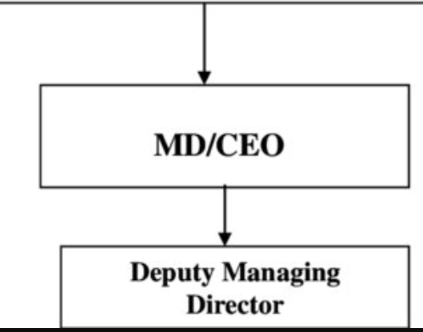The career paths for bankers in Nigeria are hierarchical. In some banks, you begin as a graduate trainee, progress to executive trainee, and then advance up the ladder. This progression varies from one bank to another.
We have some of the top billionaire bankers in Nigeria today who entered the banking sector in their early 20s as Executive Trainees and climbed the ladder to become Executive Directors in less than 15 years.
For instance, the founders of Guaranty Trust Bank, Olutayo Aderinokun and Afolabi Adeola, were 35 and 36 years old respectively when they established GTBank in 1990.
You can imagine the age at which Tayo and Fola entered the banking sector.
Similarly, Bolaji Agbede, the newly appointed Group CEO of Access Holdings PLC, became an Assistant General Manager with barely 11 years of experience in the banking sector. However, she has had a very robust banking career.
Today, some graduate trainees may spend more than 10 years in a position, and some of them may not attain the Assistant Manager position before leaving the banking sector due to age or other circumstances.
Regardless of the initial position one enters the banking sector with, here is the typical banking career ladder in Nigeria:
- Executive Trainee (ET)
- Asst Banking Officer (ABO)
- Banking Officer (BO)
- Senior Banking Officer (SBO)
- Asst Manager (AM)
- Deputy Manager (DM)
- Manager (MGR)
- Senior Manager (SM)
- Asst General Manager (AGM)
- Dep General Manager (DGM)
- General Manager (GM)
- Executive Director (ED)
- Dep Managing Director (DMD)
- Managing Director (MD/CEO) or Group Managing Director or Group Chief Executive Officer.
No unified hierarchy
We also discovered that the hierarchy is longer in some Nigerian banks and may not be arranged as outlined in this post.
For instance, you could have an Executive Assistant after Executive Trainees while there are ABO 1 and ABO 2 in some of the banks.
Experience:
The prerequisites involve possessing banking knowledge and the skills required to manage higher positions.
Some of the services that anyone wishing to climb the banking ladder must have include setting up savings accounts, facilitating money transfers, granting loans, and managing assets and credit, among others.
They must also have gained impressive experience advising customers on banking services and products.
As a banker, your responsibility also includes the supervision of transactions, managing bank accounts of your client.
Whatever position you occupy, it is your duty to explain and recommend the services and products of the bank to new and existing customers based on their needs.
Qualification:
- Business Adminstration
- Banking and Finance
- Accounting
- Finance
But we’ve also seen some banking titans who studied none of the courses, but reached the highest ladder.
For instance, Ms. Agbede’s first degree was in Mathematics and Statistics while the former GMD of Access Bank Aigboje Aig-Imokhuede was trained lawyer.
so, first qualification isn’t a barrier in the banking sector.


